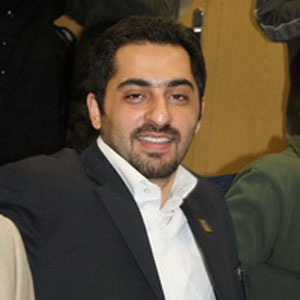Turkey’s Opposition to the West's Military Presence in the Region
.jpg)
Prime Minister Recip Erdogan, who raised his voice after the events in Egypt and warned that leaders had to be worried about Judgment Day due to the oppression of their nations, remained silent in the case of Libya. Now that NATO, accompanied by Turkey, a member, has attacked the North African country, the Turks can do nothing but acknowledge the inevitable transfer of power by Muammar Gaddafi. Makan Eidipour, expert in Turkish issues, stresses that Turkey's role is mostly symbolic and the country does not enjoy a favorable military context to take a key leadership role in the region.
IRD: What do you think about Turkey's dual stance toward the developments in Libya?
ME: I think that Turkey, as a stable and large country in the region, has a special place in terms of race and religion, and has the potential to mediate or manipulate in conflicts. But Turkey has a limited military and economic power, and consequently the limitations affect this country’s efforts in mediation. When a government acts as a mediator in a conflict like that of Libya or the Arab-Israeli conflict, metaphorically it should have some cards to play. But it should be noted that Turkey did not have many cards available. Although Turkey’s approach to the recent developments of the Middle East was positive and beneficial to Iran, basically the country’s return to the scene of international relations in the Middle East and its adoption of constructive and passive positions in the Muslim community has been considered good. But I think to some extent Turkey is overreacting, and the adoption of a major role will not harm Turkey, but it does not mean that if Turkey is involved in any disputes, it will be effective or able to advise the ruler and leader to leave office, for in the international environment, power and superpower have their own definitions. A country that wants to act beyond the region and to maneuver politically should have military backing for these maneuvers. Turkey's military forces are limited, and its role in these conflicts is minor and seemingly symbolic. The support of a legitimate and stable government- having reasonable relations with the West- for a popular movement, is definitely reflected positively in politics and the media, but when it comes to security and power transfer, it cannot play a major role. Libya is a country located in the North Africa and the source of interest to many countries, so I do not consider Turkey’s role beyond the media and public relations in the Muslim world.
IRD: Turkey has its NATO membership card in hand, but in the recent developments, it acted differently from European institutions and the White House. How do you see this?
ME: Turks are not pleased with Western forces in the region and especially in Islamic countries, and this new red line is drawn in the Islamic government of Turkey. The country that experienced the occupation of Iraq and Russia's intervention in the Caucasus, feels that every incident leading to military intervention and the presence of the Western militaries in the region must be resisted. As Libya’s case causes the influence of the US in Libya to be extended or the territorial integrity of Libya to be questioned, Turkey concluded that the crisis should be brought to an end somewhere, even at the expense of mediation or contradictory statements about Gaddafi, because it had become the matter of a choice between bad and worse. All the regional governments are aware that Gaddafi had no friends during his rule and has no legitimacy in his country; on the other hand, the presence of Westerners and their intervention somehow diverts the Libyan movements and the consequences may be more catastrophic.
This position is shared by the countries opposed to the West; like Iran, Turkey and Syria, that believe that Western militaries should not intervene in the Libya’s affairs and the Libyan people should decide their fate: helping the Libyan protestors must not be a pretext for military intervention. In summary, the Middle East as well as Turkey’s Mediterranean Sea, is considered a field of maritime security and the more military forces are present in the Middle East, the more serious is the threat to Turkey.
IRD: Does this dual policy cause the position of Turkey to be vulnerable in the Arab countries?
ME: Libya is different, and even pro-West countries and US allies did not like Libya and had problems with Gaddafi‘s government. But the process through which Turkey went, i.e. supporting Palestinian aspirations and and intervening policy regarding the Arab-Israeli conflict, is an issue that keeps Turkey away from Arab countries in the future. Inevitably Arab countries, especially those that are puppets of the West, will have problems with a country like Turkey, and this will be harsher in its viewpoint toward the Islamic societies. The chain is a reaction of the Arab countries that continue and a government, here Turkey, that wants to control world public opinion and should adopt a stronger position in support of the uprisings, and this certainly affects Turkey’s relations with the Arab countries.

